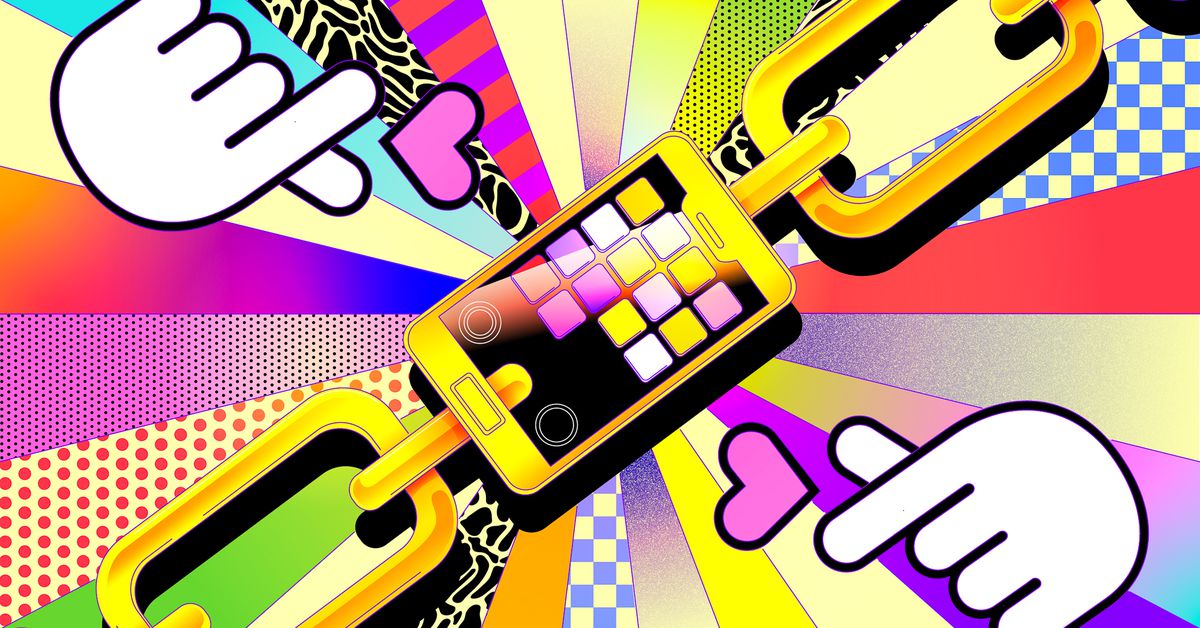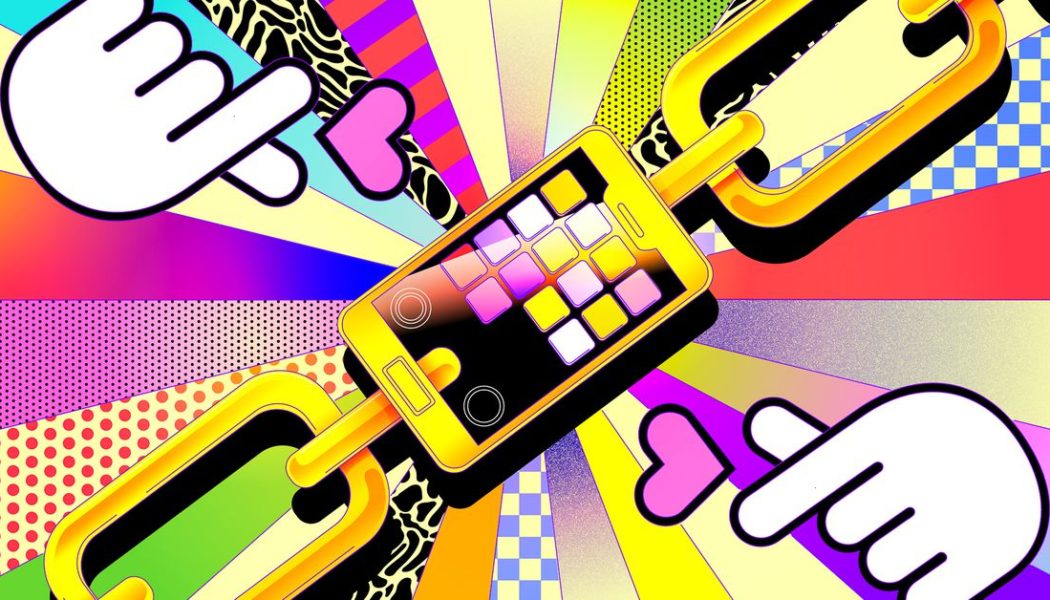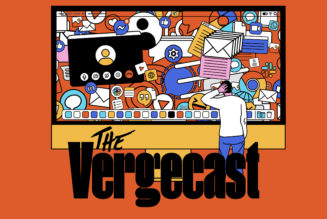
Fandom has changed a lot since I was a kid. As a tween, I had no hope of getting in touch with celebrities I adored like Britney Spears and Whitney Houston. Now, I’ve not only spoken with some of my celebrity favorites on social media, but I’ve even fought with a few.
The technology of fandom is changing, too. Parasocial relationships — a largely one-sided relationship between a fan and a public figure they feel close to due to social media — are everywhere online. And the companies behind some of the biggest acts in K-pop are pioneering a new way to monetize them. They’ve developed online platforms to help K-pop fans feel as though they have direct access to their idol favorites. That access helps shape the way these fans interact with the idol as a form of friendship and how they engage with other fans.
Before the rise of social media accounts and company-run platforms, most fans for Korean artists basically were locked into direct engagement through fancafes — a kind of digital fan club that often required fans to prove their knowledge of a particular artist before gaining access to artists. Initially hosted on platforms like social networking site DAUM, these fancafes allowed fans to connect with idols directly, and they could become even more intimate when connected with the official paid fan club memberships.
While the DAUM fancafes for many idols are still up and running, there has been a shift away from them over the past two years, especially for English-language fandoms. In their place, several companies have created new social apps for their artists, entirely bypassing third-party platforms like Twitter or Facebook. Three main platforms now stand out: NCSoft’s Universe is used by a wide range of groups managed by companies outside of the Big Four of Korean pop music and includes features like a “private messaging” service, exclusive music, and mildly controversial AI-generated voice calls with idols. HYBE’s Weverse is home to mega-groups like BTS and TXT and structured more like the DAUM fancafes. Finally, there’s SM’s LYSN, which includes the truly innovative Bubble app that has found a way to give K-pop groups all of the benefits of Twitter DMs, without many of the problems.
SM is a K-pop-producing powerhouse behind groups like TVXQ and the cyberpunk girl group Aespa. Its platform, LYSN, first launched in 2018 as an “interest-based fan community.” It was a relative failure before the 2020 introduction of its Bubble idol instant messaging service, which kicked profits into the stratosphere. With the different versions of Bubble, fans can contact their favorite idols through partially private messaging, paid for on a subscription basis. The app is designed to look like a one-on-one chat window, but the reality is more like a massive group chat, with the idol dropping in messages for thousands of fans at once and seeing replies as they come in.
Areum Jeong, assistant professor of humanities at Sichuan University-Pittsburgh Institute, says the apps offer fans a real chance to strengthen their relationship with their current favorite idols.
“Fans are fully aware that it is technically a group chat where the idol will receive messages from thousands of fans, although fans cannot see the other fans’ messages,” says Jeong. “Even so, fans enjoy receiving messages where the idol shares his / her daily life and thoughts. And at times, it can feel like you are receiving a personal, private message from the idol because the interface gives an illusion of a 1:1 chat, and some idols will send messages that cater to intimate feelings.”
That faux-intimacy can be a powerful force for fans who use these platforms regularly. “I like using Weverse specifically because I love seeing member interactions in a seemingly authentic way,” says Leigh, a fan of idol group Seventeen who connects with the group through Weverse. “It is fun to see members in basically a glorified group chat that, from time to time, it feels like I am an observer of, but most of the time, I feel like I am a participant in.”
Part of the appeal is that fans can feel as though they’re seeing a different, more personal side to the idol they’re following on less direct platforms like Twitter or Instagram. For Nicole Santero, a PhD student currently doing research on the culture on BTS’s massive international fan base ARMY (and who runs the @ResearchBTS Twitter account), it’s all about the connections that fans can make in their interactions with the artists.
“The relationship between BTS and ARMY never feels one-sided. What has stood out about Weverse is how BTS is so active and often responds directly to fans on the app,” says Santero. “That makes Weverse even more appealing, and there is definitely this greater intimacy and closeness formed between artists and fans through these types of interactions. Knowing that BTS could potentially see your posts makes the experience even more meaningful.”
These company-run apps don’t just offer fans the ability to receive comfort from the artist. For some fans, the appeal is in getting to offer support when an artist is going through a health issue, a scandal, or simply when they’re bored on their rare downtime.
For Maxim, an Australian Stray Kids fan who’s been using the Bubble app for six months, it’s been a mix of good times and bad times. “The Great Hyunjin Incident of ’21 was a bit of a tumultuous time for that whole band / fandom, and I do admit that I sent a little buck-up message of encouragement through to Felix,” he said, referring to group member Felix. “Other times, I’ve replied to messages when Felix asks for recommendations and try to sneak my taste onto his agenda. Again, there’s genuinely no way to know if he ever sees it. Would he even watch Yuri on Ice or Sk8 the Infinity?” (I think he probably would.)
Unlike past fan clubs for other celebrities, there’s no guarantee that what happens on company-run apps will stay on those apps. In fact, due to the medium to low quality of in-app translation services to translate from Korean to English, there are translation accounts for many of the artists across these platforms that focus exclusively on Weverse / LYSN and Bubble / Universe. If an idol’s fan base is small or poorly organized outside of the company-run platform, they may have fewer translation accounts. However, that doesn’t stop fans from sharing memes, artist-uploaded selfies, and clips from livestreams everywhere that they can.
There can be a hard edge to that intimacy. “As more fans than ever view themselves as active consumers, they can be unreasonable or even hostile,” says Jeong. Fans of rookie idol group Enhypen have been dealing with a fractured fandom following a member potentially saying the n-word, and much of the conflict between fans stems from interactions on Weverse. Fans on the platform tried to hide violent and racist posts from the artist using an in-app feature for inter-fan communication and ended up attacking Black fans speaking out about the incident and then about the harassment they were facing. Within hours of the initial wave of harassment, Black fans of the group took to Twitter and TikTok to share what they were seeing and how people were talking about them — especially in the face of continued silence from the group, their management, and Weverse moderation. The app they’d been using to connect with other fans and the idols themselves was no longer the safe space it had been.
Still, none of these engagements would have been easy 10 years ago, and most would have been flat-out impossible 10 years before that. These platforms offer an entirely new way for celebrities and their fans to interact, building on conventional social media platforms but increasingly distinct from them. And for better or worse, it’s changing what it means to be a fan — or an idol — online.








